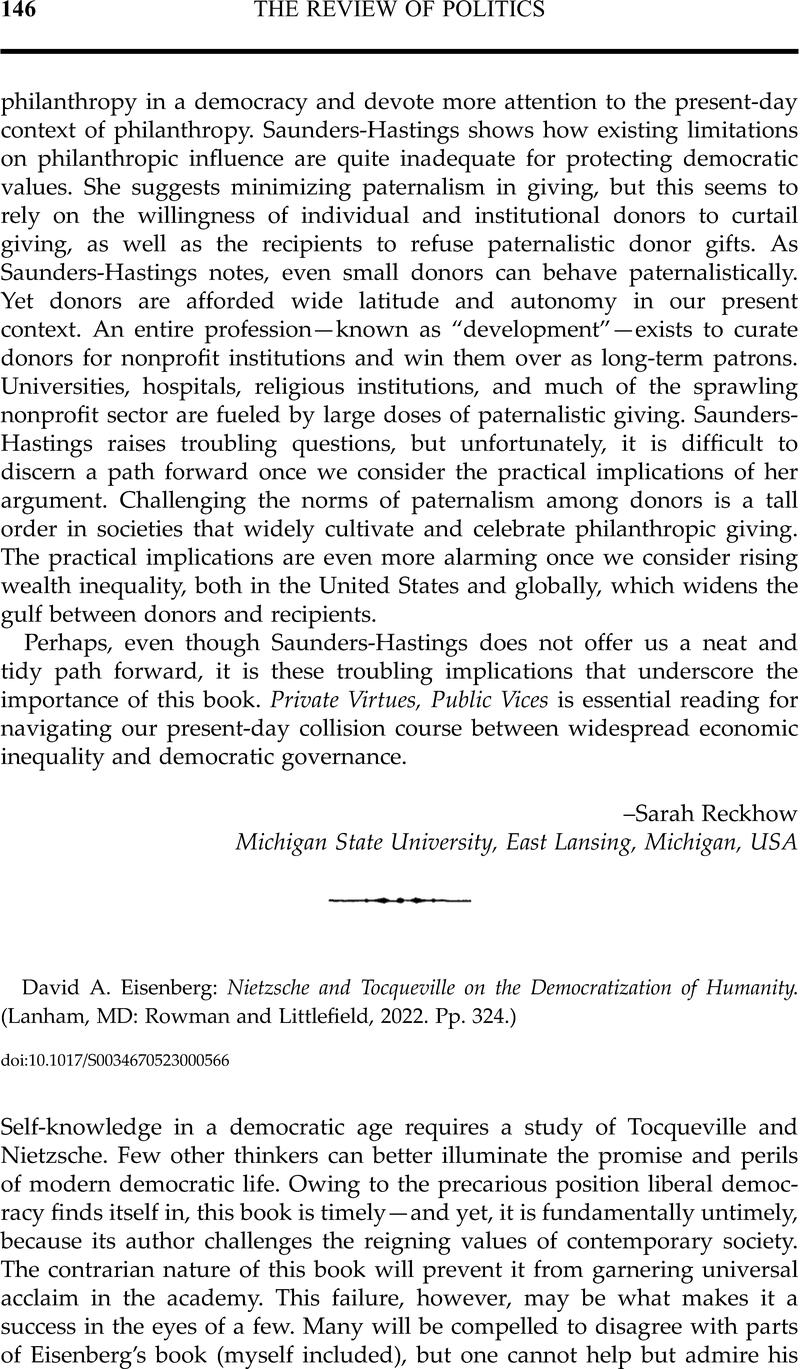No CrossRef data available.
Article contents
David A. Eisenberg: Nietzsche and Tocqueville on the Democratization of Humanity. (Lanham, MD: Rowman and Littlefield, 2022. Pp. 324.)
Review products
David A. Eisenberg: Nietzsche and Tocqueville on the Democratization of Humanity. (Lanham, MD: Rowman and Littlefield, 2022. Pp. 324.)
Published online by Cambridge University Press: 27 November 2023
Abstract
An abstract is not available for this content so a preview has been provided. Please use the Get access link above for information on how to access this content.

- Type
- Book Review
- Information
- Copyright
- Copyright © The Author(s), 2023. Published by Cambridge University Press on behalf of University of Notre Dame


